Decentralised digital passport boosts supply chain efficiency
The traditional paper trail has been at the heart of industry and commerce for decades. Today, many work and data flows are still document based. This leads to a dependency on paper-based evidence and records resulting in inefficiencies and added costs. At Shell, we are working with our supply chain to create a digital audit trail for equipment, utilising blockchain technology. The aim is to reduce waste and drive efficiency across the end-to-end process, thereby benefiting all parties.
Digitalisation is transforming operations and business processes across the energy sector. But, when it comes to supply chain processes that cross organisational boundaries, data sharing becomes a challenge that still relies heavily on documentation and manual handovers. This means that there remains a high chance of delays, errors and duplication at crucial steps in the procurement process.
Shell aims to enhance and optimise this process by introducing a digital solution that tracks equipment right through the procurement cycle, from initial design and manufacturing to inspection and installation. The blockchain-based decentralised digital passport creates a unique digital ID for a piece of equipment and records any digitally verified state changes to that digital asset. This digital asset and its immutable history can then provide a single source of truth throughout the life cycle of the equipment. Blockchain technology allows segmented access to relevant data for all parties involved in the procurement cycle, without compromising each other’s data. The digital passport enables all parties to record key data, approvals and certifications for equipment in a decentralised, digital format. This eliminates the challenge of multiple parties having to choose a centralised system.
We have recently completed a successful digital passport pilot project in collaboration with Shell partners Worley, Flowserve, Bureau Veritas, Ventil and Kryha to demonstrate the viability of secure data sharing across a typical project supply chain.
Building on success
The pilot project realised a substantial reduction in costs for the various partners involved in the purchase of a control valve. Processes became more streamlined through less time spent on administration, documentation and managing interfaces with other parties in the supply chain. “One-source of truth”.
The initial results have been very positive, as Terry Booth, Project Engineering Manager at Worley said: “The pilot test has already realised cost benefits, improved workflow efficiency and increased transparency during workflow execution that will lead to a higher quality and safer product. We are excited to expand the project to bulk and multiple commodities and to be at the forefront of globalising the use of blockchain in our industry. The opportunities are endless!”
The focus for the pilot project was on providing digital passports for establishing and tracking production milestones, planning and executing inspections, and releasing control valves. We are now scaling the solution to manage larger volume orders and, as the next steps, extending functionality and the range of equipment being tracked to include other types of critical equipment.
The pilot has shown that intercompany collaboration can address industry-wide issues. Jordan Zaiser, Director, Global Project Management at our equipment partner Flowserve, said, “The digital passport has brought together the full value chain to look at opportunities to create efficiencies to avoid the common problems that plague our industry. All the partners have worked well together to ensure that the outputs are beneficial for everyone without bias. Flowserve is excited about being part of the process to change the way we work, communicate and share information.”
The decentralised digital passport complements the aims of the Joint Industry Programme (IOGP) for Standardizing Procurement Specifications (JIP33). Participants in this programme, including us at Shell, are working to improve the specification, procurement and delivery of equipment for the energy industry by introducing standardised procurement specifications. JIP33 will help to reduce supply chain variation and increase efficiency, thereby providing significant value in scheduling and capital cost control.
Daniele Raini, Director of Global Operations Support at Bureau Veritas welcomes the opportunity to introduce a system that enhances quality assurance. “The digital passport has proven to be a powerful platform to enable all the stakeholders involved in purchasing, manufacturing, inspecting and delivering project equipment and materials to cooperate and to exchange data in a timely and transparent manner. Bureau Veritas is fully supportive of continuing the journey with Shell by complementing the solution with dedicated quality assurance and management frameworks so as to provide end-to-end trust in the data in the ecosystem and open the doors for wider adoption in the industry.”
Future applications
The vision is to develop a streamlined, standardised, paperless and errorless equipment procurement process that can be adopted by the entire supply chain and that is accelerated by joint industry governance. The digital passport system has many potential applications beyond streamlining equipment audit trails. It could be used to track the carbon footprint of an item or to enable one-click, off-the-shelf procurement with a ready passport and automated milestone payments using smart contracts.
Gavin Langley Vice President Integrated Gas Projects at Shell believes that “The decentralised digital passport is the tip of the iceberg, and I see many uses and a lot of expansion potential for this technology. In the wake of the COVID-19 pandemic, there are clear benefits in using remote tools that are fully integrated into the blockchain for complete traceability and assurance without excessive travel. This is also a positive for the environment.”
Dick Wynberg, Vice President Contracting and Procurement at Shell Projects and Technology added: “Some of the capability this concept has unlocked can be found beyond the technical tracing of bulks and components. The digital inspection processes during manufacturing, the factory acceptance tests, the certifications and supply chain logistics all the way to the Project site or Asset are mapped in real time, and everyone has access to (their respective parts) of the same data. Projecting this forward sees the potential on the Project-to-Asset transfer process in a data-centric way. The more we can leverage this process across bulks and more components, the more we can benefit from costs savings that benefit our bottom line. I believe that by adding this capability to our existing ARIBA/SAP process, this can have a significant impact on overall pricing”
Shell believes that a blockchain-based system has huge potential to change how businesses interact and to encourage new partnerships that will accelerate change. Widespread adoption of the decentralised digital passport could deliver industry-wide benefits, so, to achieve this, we are working with our partners to develop effective governance and encourage widespread adoption.
The digital passport ecosystem is learning, developing and growing. We look forward to the next phase of collaboration!
Read the latest issue of the OGV Energy magazine HERE.
Published: 10-10-2021
Marketing Permissions
OGV Energy will use the information you provide on this form to be in touch with you and to provide updates and marketing. Please let us know all the ways you would like to hear from us:
Direct Mail
Customised online advertising
Subscribe
(function($) {window.fnames = new Array(); window.ftypes = new Array();fnames[0]=’EMAIL’;ftypes[0]=’email’;fnames[1]=’FNAME’;ftypes[1]=’text’;fnames[2]=’LNAME’;ftypes[2]=’text’;fnames[5]=’MMERGE5′;ftypes[5]=’text’;}(jQuery));var $mcj = jQuery.noConflict(true);















